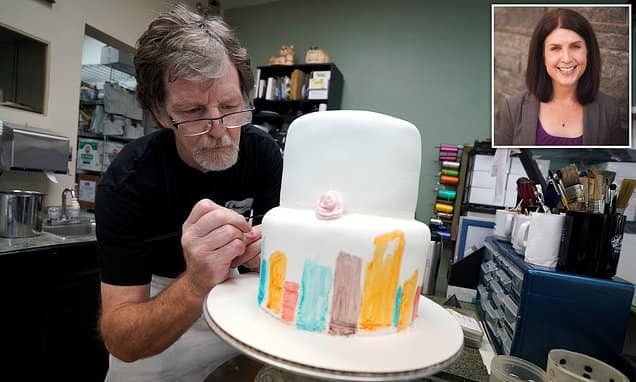A baker who previously appealed a ruling that went against him because he refused to make a cake for a transgender person’s gender transition is currently appealing another ruling that went against him because he refused to make a cake for a gay couple who were getting married.
In a case that was brought against Jack Phillips by a transgender attorney, Jack Phillips’ attorney filed an appeal on Wednesday, asking the Colorado Court of Appeals to reverse a decision that was made the previous year.
Autumn Scardina contacted Phillip’s Cake Shop in Denver, Colorado, in 2017 to place an order for a blue birthday cake with pink filling to represent her transition into the female gender.
However, Phillips, who is a Christian, refused to comply with the request. He testified in court the previous year that he does not believe that a person can change genders and that he would not celebrate “somebody who thinks that they can.”
A. Bruce Jones, a district judge in Denver, issued a ruling in June 2021 finding that Scardina had violated the law by not providing him with a cake and fining him the maximum amount allowed by the Colorado Anti-Discrimination Act, which was $500.
Phillips claimed that he was unable to bake the cake due to the message it contained, but Jones stated that the case was about a refusal to sell a product and not about compelled speech.
‘The anti-discrimination laws are intended to ensure that members of our society who have historically been treated unfairly are no longer treated as ”others”,’ Jones wrote.
But now, Jake Warner, a lawyer representing Phillips from the conservative Christian legal advocacy group Alliance Defending Freedom (ADF), is pushing for the court to overturn the ruling on the grounds that compelling Phillips to bake a cake signifying a message that is in contradiction with his beliefs is the same as violating his right to free speech. Warner is arguing that forcing Phillips to bake a cake signifying a message in contradiction with his beliefs is tantamount to forcing Phillips to bake a cake that symbolizes
In 2018, Phillips gained notoriety when she famously won a partial victory at the United States Supreme Court for her refusal to bake a wedding cake for a couple of the same sexual orientation.
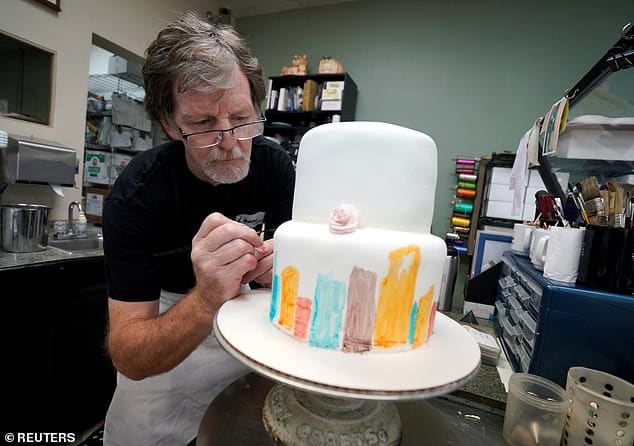
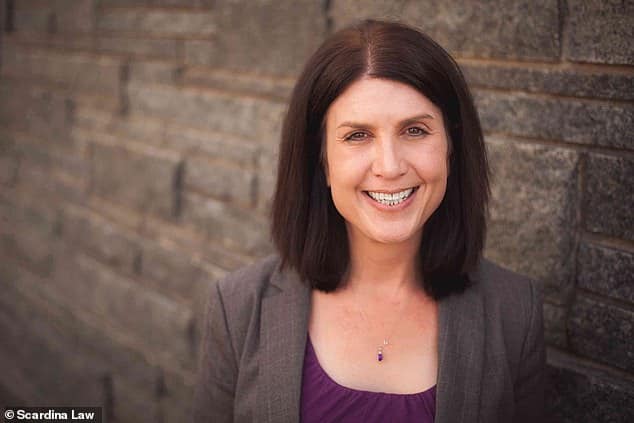
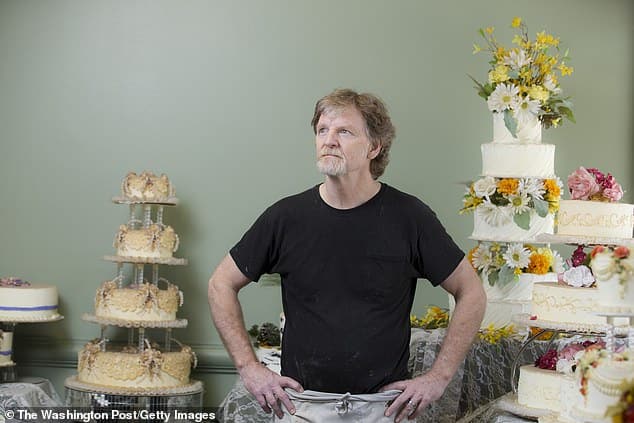
After receiving the ruling against him the year before, Phillips’ legal representation announced that they would appeal the decision and accused Scardina, an attorney, of being an activist who intended to ‘test’ the baker. This occurred after Phillips had received the ruling against him the year before.
‘In this case, an activist attorney demanded Jack create custom cakes in order to ”test” Jack and ”correct the errors” of his thinking, and the activist even threatened to sue Jack again if the case is dismissed for any reason,’ ADF general counsel, Kristen Waggoner, said in a statement.
‘Radical activists and government officials are targeting artists like Jack because they won’t promote messages on marriage and sexuality that violate their core convictions,’ the statement added.
According to Ms. Waggoner, the case “represents a disturbing trend: the weaponization of our justice system to ruin those with whom the activists disagree.”
‘We will appeal this decision and continue to defend the freedom of all Americans to peacefully live and work according to their deeply held beliefs without fear of punishment,’ she said.
Scardina, who is also an attorney, made an attempt to place the order for the cake on the same day in 2017 that the United States Supreme Court announced it would hear Phillips’ appeal in the wedding cake case, which Phillips ultimately prevailed.
It was stated by Scardina that she wanted to “challenge the veracity” of Phillips’ statements that he would serve LGBT customers; however, according to Jones, her attempt to get a cake was not a “setup” intended to file a lawsuit against Phillips. Scardina said she wanted to “challenge the veracity” of Phillips’ statements.
John McHugh, who is representing Scardina, has stated that the case is about how LGBT people are treated and not just about what happened to Scardina.
‘This is about a business that is open to the public that simply says to an entire class of people in the community that your identity, who you are, is something that is objectional,’ he said.
In March of the previous year, Phillips commented on the transgender cake to Fox News. ‘This case started the day the Supreme Court decided they were going to hear our case. It was a very busy, very crazy day at the shop.’
‘In the middle of all of this chaos, we got a phone call from an attorney in Denver asking us to create a cake pink on the inside with blue icing on the outside.’
He stated that someone had informed him that the cake would be “two colors, a color scheme, a combination, designed to celebrate a gender transition.”
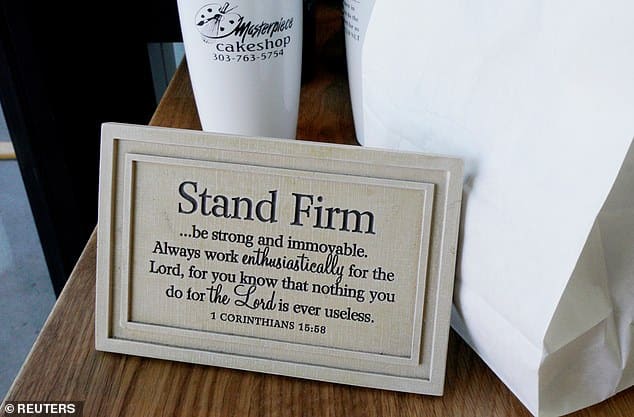
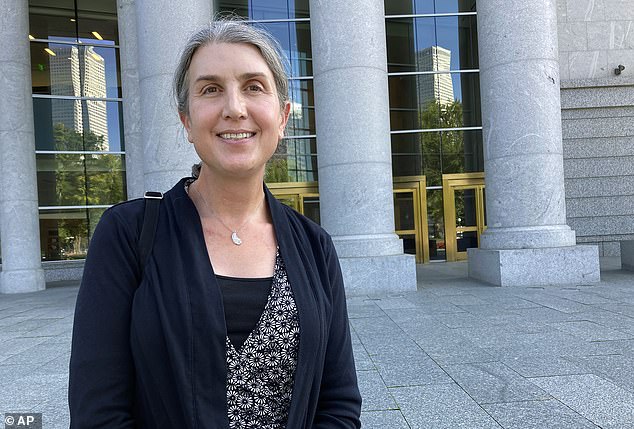
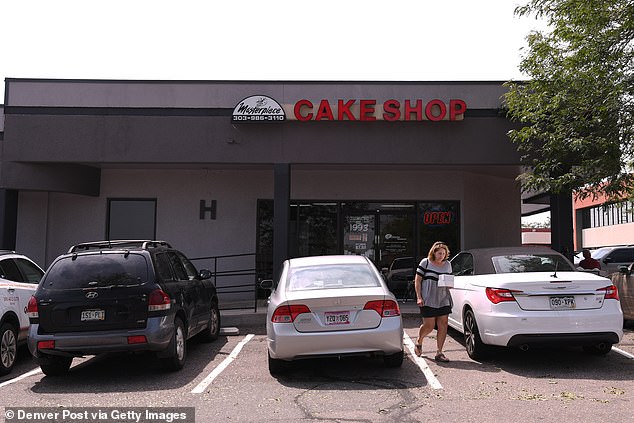
‘We told the customer, this caller, that this cake was a cake we couldn’t create because of the message, the caller turned around and sued us,’ Phillips told Fox News. ‘This customer came to us intentionally to get us to create a cake or deny creating a cake that went against our religious beliefs.
‘This customer had been tracking our case for multiple years. This case was just a request to get us to fall into a trap,’ he added at the time.
After refusing to bake a wedding cake for a couple of the same gender, Phillips was previously victorious in a case that was brought before the Supreme Court in 2018.
In a decision that was split 7-2, the Supreme Court of the United States ruled that the Colorado Civil Rights Commission acted with anti-religious bias when it sanctioned Phillips for refusing to make a wedding cake in 2012 for a same-sex couple named Charlie Craig and Dave Mullins.
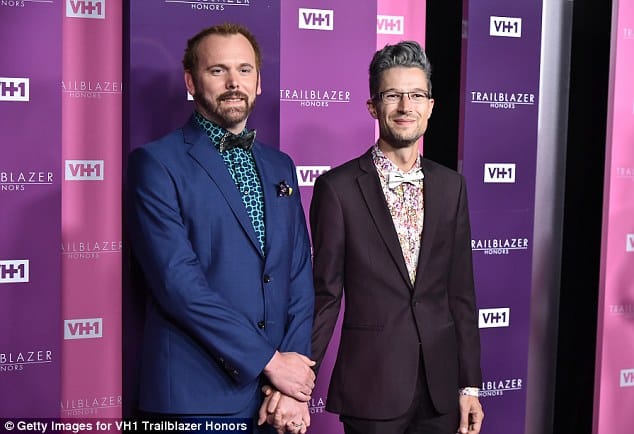
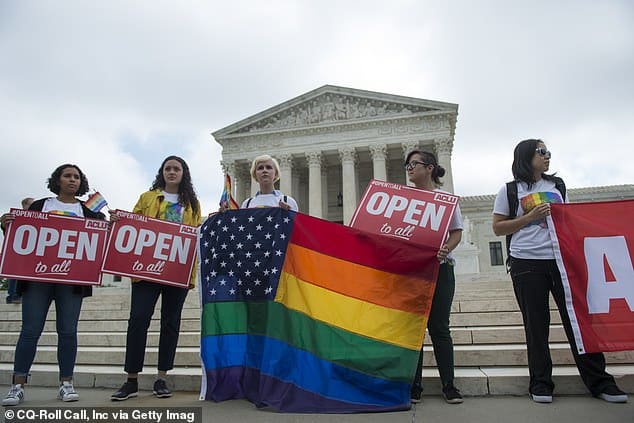
The attorneys for Phillips argued that his cakes are a form of art – a “temporary sculpture” – and that he should not be required to create one in order to commemorate a gay wedding because doing so would violate his rights under the United States Constitution to freedom of speech and expression as well as the right to freely exercise his religion.
He informed the state civil rights commission at the time that he can make no more than two to five custom cakes per week, depending on the time constraints and consumer demand for the cakes that he sells in his store that are not for special orders. This demand for cakes that are not for special orders comes from his regular customers.
Mullins and Craig, who were being represented by the American Civil Liberties Union, claimed that Phillips was using his Christian faith as an excuse for engaging in unlawful discrimination based on the individuals’ sexual orientation.
The American Civil Liberties Union (ACLU) stated that the baker was lobbying for a “license to discriminate,” which may have far-reaching effects beyond the realm of gay rights.
The case became a flashpoint in American culture, highlighting the tensions between those who advocate for gay rights and conservative Christians.
The litigation, along with other cases of a similar nature all over the country, is part of a conservative Christian backlash to the decision of the Supreme Court to legalize gay marriage.
Phillips and others who hold the belief that gay marriage is incompatible with their Christian beliefs have expressed the opinion that they should not be required to in effect endorse gay marriage despite the fact that it is legal in their countries.


